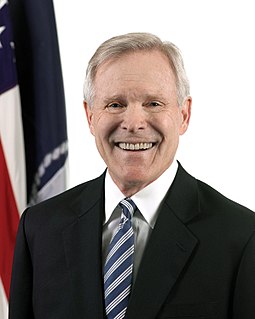A Quote by Rockline Venkatesh
Producers need to bear additional costs of safety measures such as sanitization of the location, provision of masks, gloves, transport, and insurance. It is possible to accommodate these costs in a viable manner.
Related Quotes
One of the biggest reasons for higher medical costs is that somebody else is paying those costs, whether an insurance company or the government. What is the politicians' answer? To have more costs paid by insurance companies and the government. ... [H]aving someone else pay for medical care virtually guarantees that a lot more of it will be used. Nothing would lower costs more than having each patient pay those costs. And nothing is less likely to happen.
Regulatory changes have forced banks to closely examine their liquidity planning and to internalize the costs of liquidity provision. The costs of committed liquidity facilities will be passed on to clearing members. These costs are perhaps highest in clearing Treasury securities, where liquidity needs can be especially large.
While Free Choice Vouchers didn't fulfill my vision of a health care system in which every American would be empowered to hire and fire their insurance company, they were a foothold for choice and competition and a safety valve for Americans whose employers are already forcing them to bear more and more of their family's health insurance costs.
We believe that part of the answer lies in pricing energy on the basis of its full costs to society. One reason we use energy so lavishly today is that the price of energy does not include all of the social costs of producing it. The costs incurred in protecting the environment and the health and safety of workers, for example, are part of the real costs of producing energy-but they are not now all included in the price of the product.
Kyoto costs a lot, does nothing to prevent calamity, and pays no compensation in the event of loss. If my insurance broker offered that sort of policy, I would not carry insurance. Instead what my broker offers is a policy that costs a little and pays full compensation in the event of loss. If someone wants to propose that as a policy on global warming, I'm all in favour.
Given our inevitably incomplete knowledge about key structural aspects of our ever-changing economy and the sometimes asymmetric costs or benefits of particular outcomes, a central bank... need to consider not only the most likely future path for the economy but also the distribution of possible outcomes about that path. They then need to reach a judgment about the probabilities, costs, and benefits of the various possible outcomes under alternative choices for policy.

































